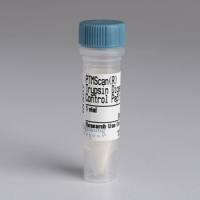In Situ Hybridization in Flow Cytometry
互联网
401
Molecular approaches to diagnostic questions in clinical medicine are greatly impacting the way researchers and clinicians investigate and treat disease. By combining molecular techniques with classical immunologic tools such as flow cytometry (FCM; 1–3 ), one can begin to more fully understand and appreciate the role of cellular heterogeneity in disease processes. The marriage of these two powerful techniques, termed molecular cytometry, will, in one instance, allow investigators to explore expression of nucleic acid sequences in subpopulations of cells defined by immunologic phenotype while, conversely, making it possible to examine the heterogeneity of cellular characteristics within populations identified by the presence of specific nucleic acid sequences or gene expression. Future developments may result in several advantages for the patient that may include, but are not limited to, earlier detection of viral infection, earlier and more sensitive detection of malignancy, and higher sensitivity and resolution of small populations of infected or aberrant cells. These developments may also assist in the identification of therapeutically resistant populations within a neoplasia, more effective and specific monitoring of therapy, and possibly the identification of new and disease-specific targeted therapies based on genetic information. The characterization and assessment of cellular heterogeneity is clearly key to understanding disease onset, progression, and therapeutic response in both infectious disease and in human malignancies.








